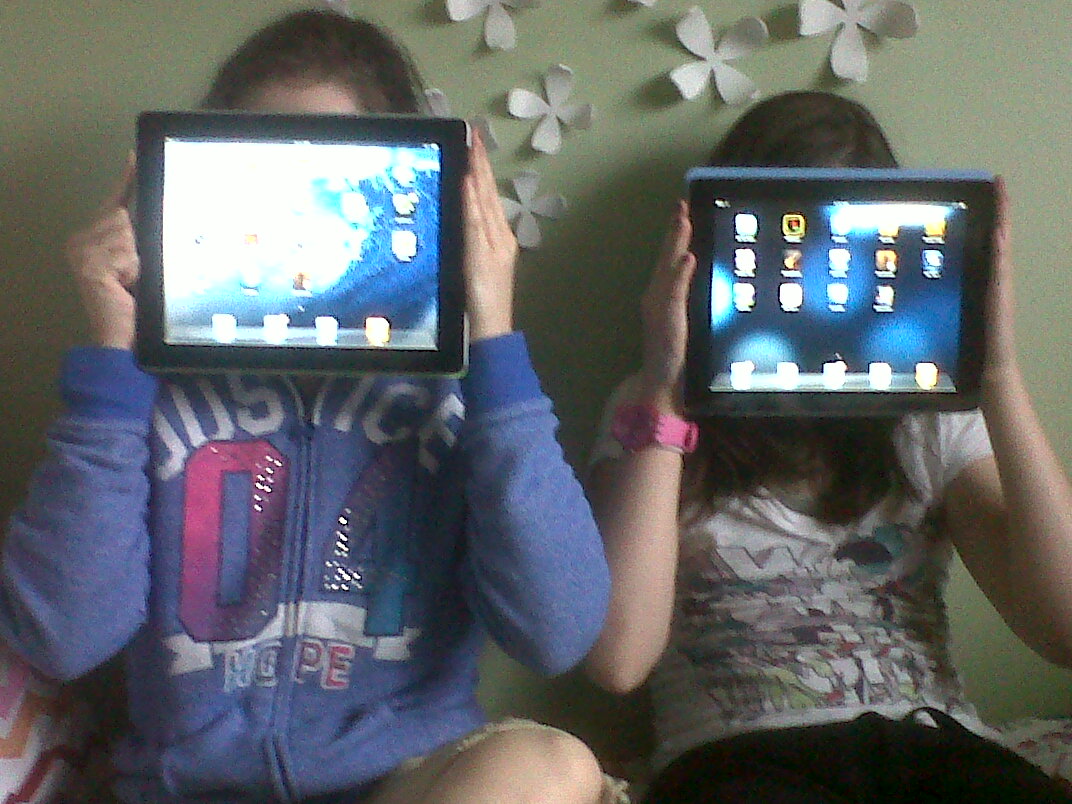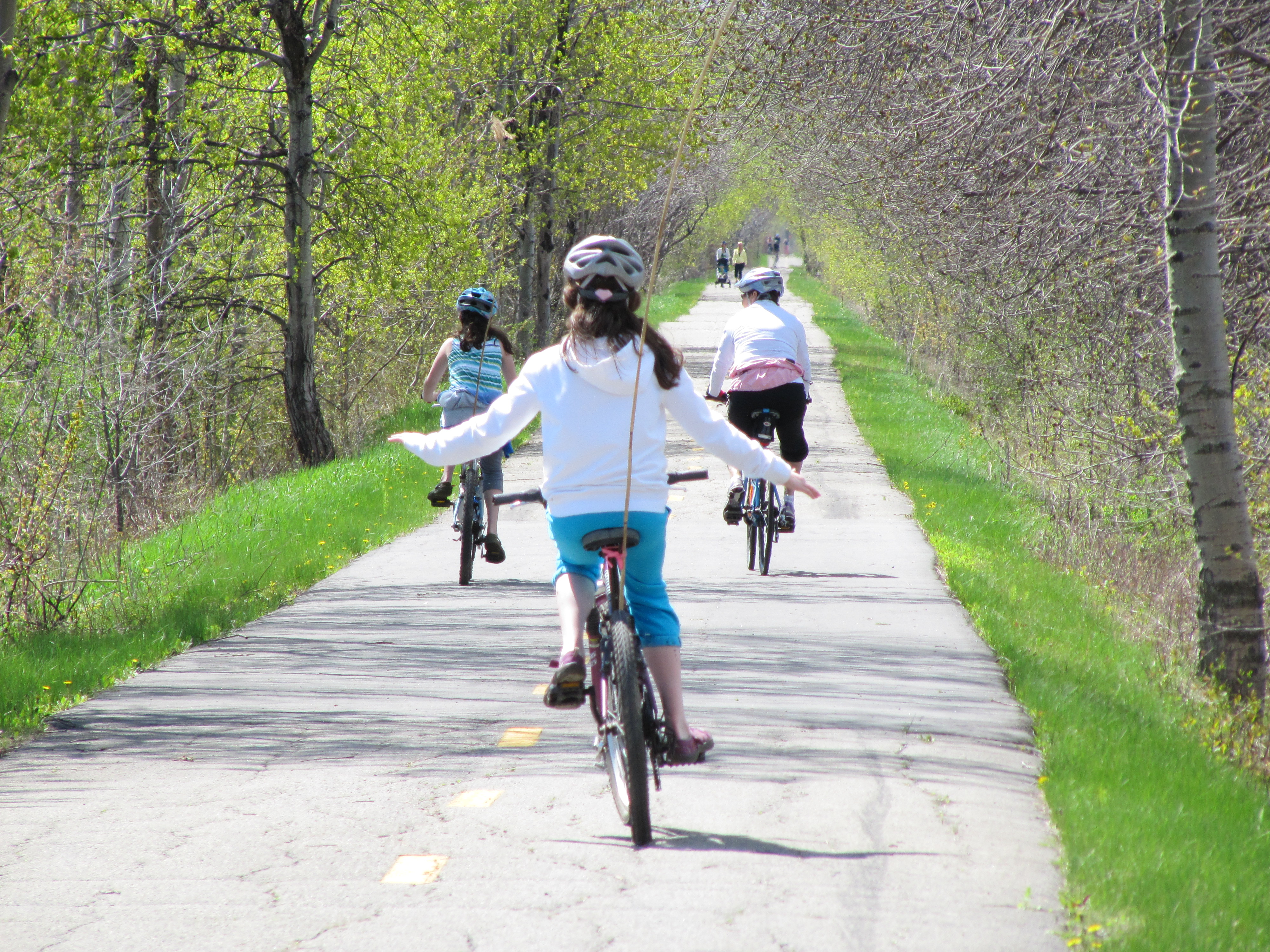My older girls, twins about to turn 12, were lucky enough to get brand new, freshly minted iPad2s from their great-aunt and uncle on the occasion of their bat mitzvah. It’s pretty safe to say that the arrival of these gadgets this past weekend was one of the high points of their young lives. They barely slept the night before, spoke about them incessantly, researched apps, games and features.
My husband and I figured they were ready for this leap of independence, since they are pretty good, easygoing kids with strong grades and are voracious readers. Plus, the high school they will be starting in September highly recommends each kid have their own iPad2s for homework assignments and the like. Coupled with a bluetooth keyboard, it’s a relatively affordable starter laptop.
The first day they had them, we gave in to their excitement and let them spend hours setting them up and playing them. They added Facebook, Angry Birds and loads of other entertainment-related stuff, but they also used an iTunes gift card from a friend to add GarageBand, and have spent lots of time composing songs, which is kind of cool.
We normally impose a 30-minute time limit on non-productive screen time, which includes playing games, chatting on Facebook or playing with the DSi or Wii. If they are doing something creative (say, working on a novel or creating animation) or homework, that isn’t generally limited. (Unless it’s a gorgeous day outside and they are still in their pyjamas staring at a screen at 1 p.m. in the afternoon, in which case we flip out and order them to log out or unplug and get their butts outside.) But last weekend, we figured we’d let them get their initial excitement about the iPads out of their systems so we could resume our normal lives.
Yup. We are that naive, even after all these years of parenting.
It’s safe to say that adding these tablet computers into our family lives has added more complications than it has solved problems. I thought that the girls would argue less, since there were no longer three of them jostling for one computer. Nope. Now their almost 8-year-old sister engages in endless, fruitless negotiation for a few golden minutes with one of her sisters’ new toys. Last night I’m pretty sure I heard her promise to give them every dessert she was ever going to get again for the rest of her life.
And they said no.
Controlling access to their screen time has also become considerably more difficult. They are small and portable and hard to supervise. I used to require Facebook to happen on my laptop in the kitchen where I could keep an eye on the screen and maintain a running conversation. Now they end up in their rooms surfing their friends’ homepages two hours after I thought they’d gone to sleep. The 30-minute limit has been stretched way past the breaking point. The amount of reading, or hanging out with other family members, or walking the dog has plummeted.
Now I kind of anticipated this. And I knew new ground rules would be needed. I just wasn’t sure what they’d be.
In our house, freedom is a privilege you earn by demonstrating responsibility and respect. That basic ground rule means that they know they can earn a gradual relaxation of our rules if they consistently show good judgment.
Here are some of the ones I’ve come up with so far:
-iPads stored outside their bedrooms after bedtime;
-surfing online happens in common areas;
-all iTunes purchases must be cleared by me, even if they are covering the cost with a gift card;
-30-minute limit re-imposed, meaning they need to be pleasantly accountable to me when I inquire what they are up to (no visible eye-rolling, no snarky answers, no whining, pleading or shouting);
-fighting with anyone on anything iPad-related means an automatic, temporary suspension of access.
I’ll let you know how this goes, but I’d welcome any suggestions of rules you’ve set for your kids when it comes to computers, iPods, mobile phones, Wii’s, etc, and how those are working out.



